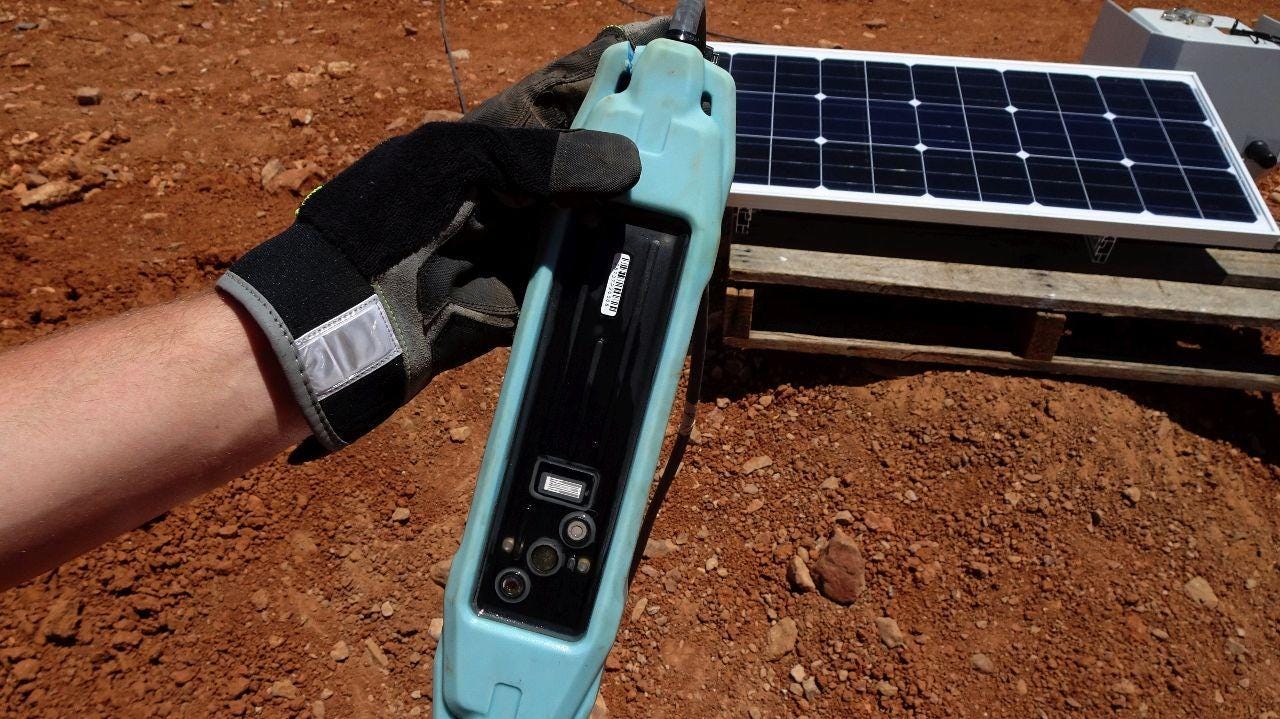CSIRO masters groundwater monitoring with Sensei


The Commonwealth Scientific and Industrial Research Organisation (CSIRO) has developed a new groundwater sensory system for the resources sector to monitor and manage groundwater impacts.
Designed for mining operators and water managers, the Sensei multi-sensor system features patented pH sensors and reference electrode technology, with the option to integrate third-party sensors.
According to CSIRO, when Sensei is embedded into groundwater wells and aquifers, the system simultaneously and automatically collects data, such as pH levels, temperature, and conductivity, before the data is transmitted in real-time via a Wi-Fi or satellite connection to the cloud and accessed using a visualisation dashboard.
CSIRO research leader Kathie McGregor said the Sensei system has the potential to replace labour-intensive manual monitoring methods that are currently used.
"Sensei is an automated system which delivers reliable groundwater data in real time saving companies time and money on labour from traditional manual monitoring approaches," she said.
See also: Internet of Things (IoT): Cheat sheet (TechRepublic)
In addition, CSIRO said the real-time data could be used as an early alert system to allow companies to be proactive when addressing issues around groundwater management.
"Because data can be accessed immediately on-site or remotely via the cloud, the user has the ability to detect any anomalies quickly and take action as soon as possible," McGregor said.
CSIRO said following a successful trial at Heathgate Resources' Four Mile West mine in South Australia, CSIRO is now looking for partners to bring the technology to market.
"We've been able to test Sensei's performance in a real-world setting and are pleased to report the system is still operational after almost 12 months of testing in the field," McGregor said.
CSIRO said while Sensei has been designed and tested for use in groundwater monitoring, it could also be adapted for other monitoring in an aqueous environment in extreme environments, such as by water utilities, and industrial water and chemical processing businesses.
"Due to the robust nature of the sensor unit it could also be deployed in heap leaching applications, which tend to be highly acidic. It could also be used by water utilities in monitoring ground and surface water," the research organisation said.
Related Coverage
- CSIRO goes fishing for data using a 'Fishbit'
- CSIRO shutters ON incubator as government funding dries up
- CSIRO's Data61 opens Mixed Reality Lab in Melbourne
- US patient receives first CSIRO-Foldax designed Tria polymer heart implant
- CSIRO's Data61 develops 'vaccine' against attacks on machine learning
- Aussie biotech Microba using AI to research gut microbiome